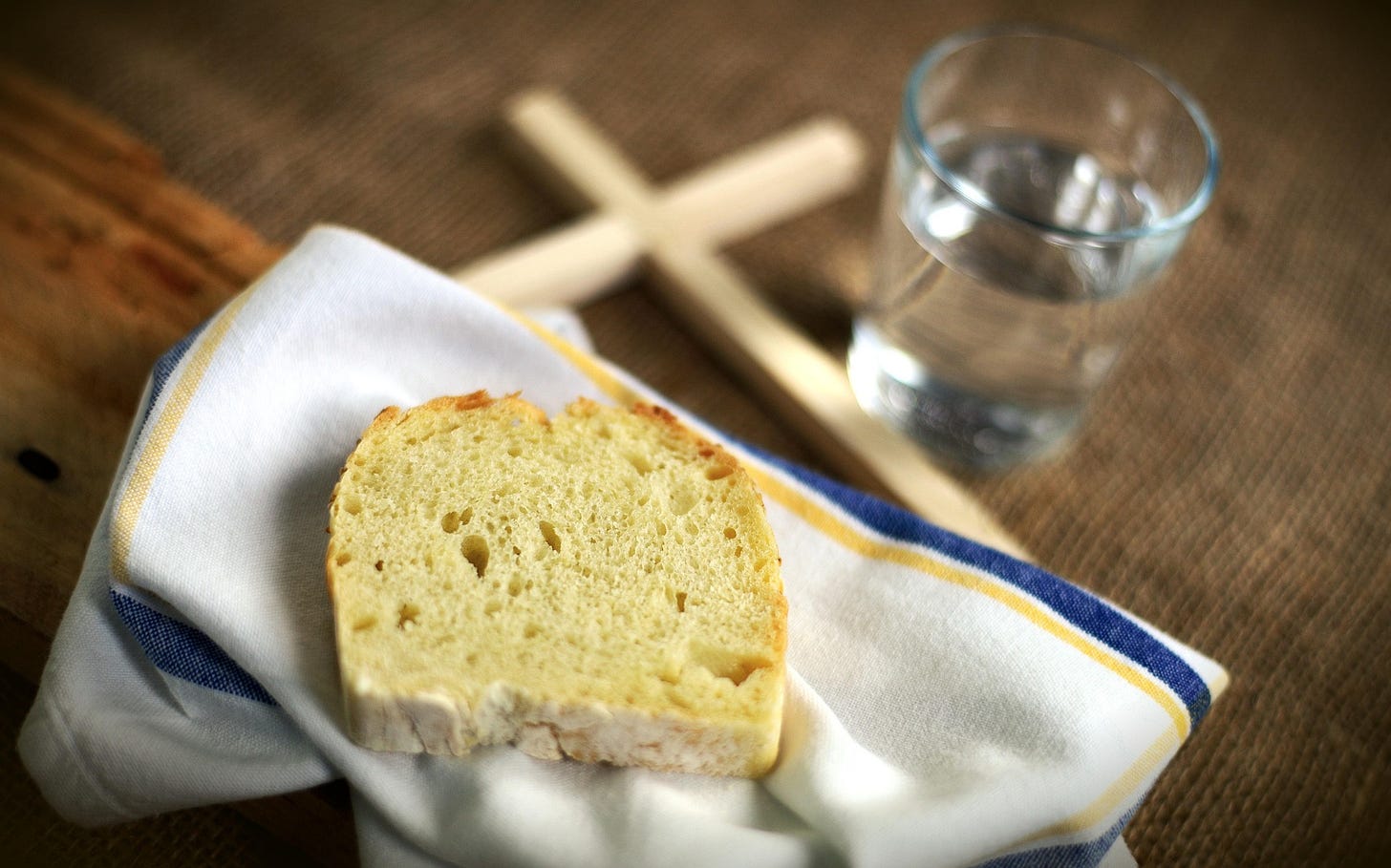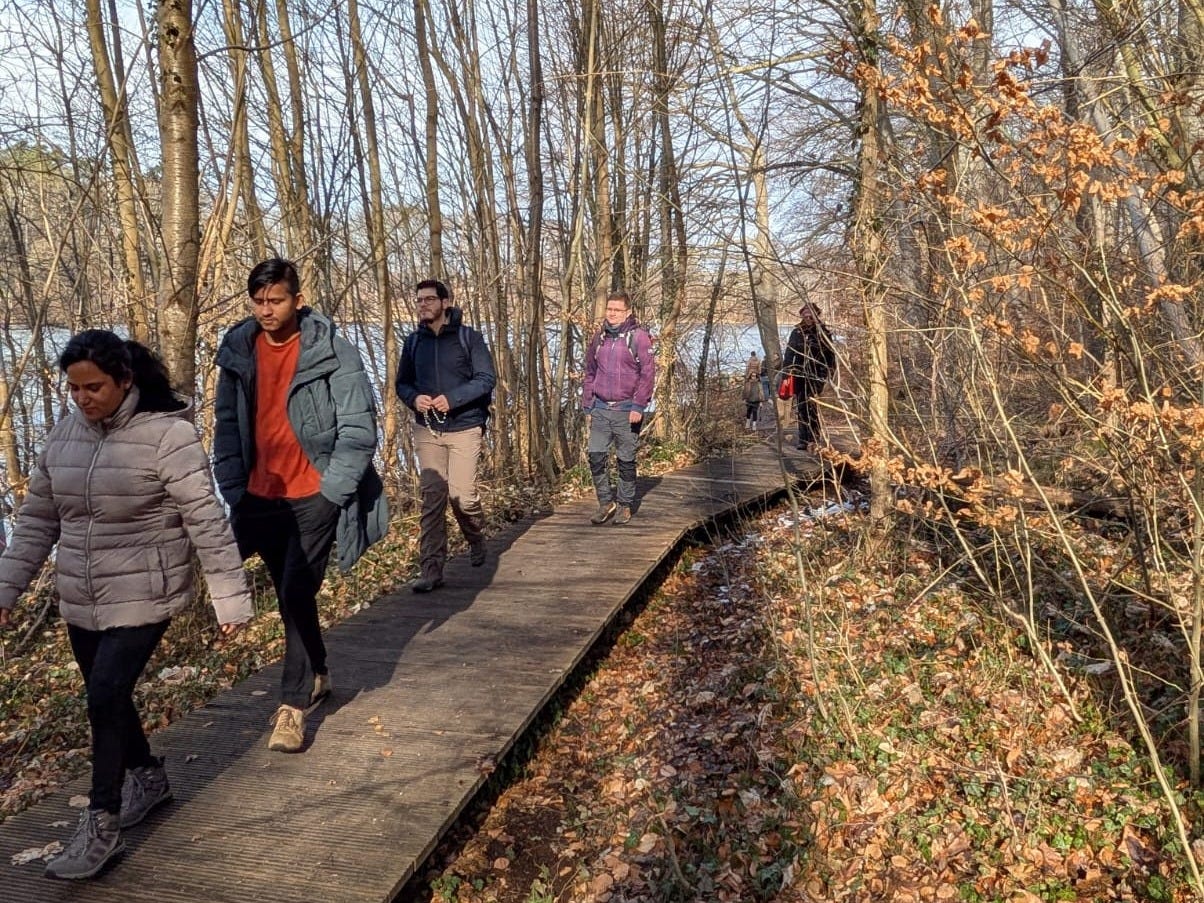Lent & Pilgrim Joy: Your Path to Inner Renewal
Discover how conscious abstinence and communal pilgrim experiences lead you to greater mindfulness, inner calm and an enriched zest for life.
Dear Pilgrims,
On 5 March this year, Lent begins for hundreds of millions of Catholics and Protestants. Liturgically, this period serves as preparation for the Easter celebration and offers many Christians the opportunity to encounter God in a new way. Additionally, on Friday, 28 February, Ramadan commences worldwide for Muslims – and in other religions too, fasting plays an important role.
Moreover, an increasing number of people are exploring fasting outside of a religious context – whether through intermittent fasting, digital detox or as a general impetus towards more mindful living. This bridge between tradition and modernity invites us pilgrims to engage deeply with the subject.
Tradition that Inspires – The Fasting Journey
On our recent pilgrim walk in the Ruppiner Land in Brandenburg, we pondered what we might do without. We walked in silence along the frozen lake, listened to the sounds of nature, and discovered answers in the quiet. Notably, many of us mentioned afterwards that consciously stepping back from news consumption and social media was a viable option – with the suggestion to reach for a book more often instead.
Fasting goes far beyond the mere abstinence from food. It is an invitation to inner reflection and self-examination. The rich tradition of fasting, along with more recent developments, demonstrates that it is less about excluding specific foods and more about identifying what hinders or nurtures a fulfilling life.
The official 40-day period of Lent before Easter, established in the 4th century, is inspired by Jesus’ fast in the desert – a time of temptation and preparation before his public ministry. Even in the early Christian communities, fasting played a significant role, drawing on Jewish fasting traditions and the practices of the apostles. In particular, the Desert Fathers shaped a tradition of spiritual cleansing and self-discipline through their ascetic rituals.
For a long time, fasting was also seen as a means not only to atone for sins but to earn special merit – which is why many voluntarily adopted an ascetic life in monasteries in order to gain a deeper spiritual experience. With the Reformation and Martin Luther’s criticism of the notion that one could earn God’s grace, the understanding changed: today, even Protestant Christians are rediscovering fasting as a way to spiritually prepare for Easter.
Fasting is an ancient phenomenon that predates Christianity by a long way. For instance, in Judaism fasting is observed on Yom Kippur, many Hindus practise abstinence at certain times, and monks of various religions use fasting to purify themselves – whether to achieve altered states of consciousness or to gain deeper insights.
The fact that people turn to fasting for a wide range of reasons – whether religious or otherwise – demonstrates that conscious abstinence taps into a deeply rooted desire for simplicity and inner purity.
Practical Tips for Your Mindful Pause
If you are considering making the most of Lent, it is important to take ample time to make this decision – whether through walking, pilgrimage, or in quiet moments of meditation, either alone or in conversation with others. First, clarify your own motivation: Why do you want to fast? What do you hope to achieve – greater mindfulness, inner calm or a deepening of your faith? And which everyday habits distract you?
Traditionally, during Lent one abstains from certain foods such as meat, sweets or alcohol. Today, more and more people are also opting to forego digital distractions like social media, TV series, news, or even general consumption and impulsive shopping. It is not just about abstaining – it is equally about turning consciously towards what is good. For example, one might not only avoid sweets or alcohol, but instead adopt a healthier diet. Rather than spending time on social media, one might choose to read more or spend quality time with friends and family.
It is important to set realistic goals and prepare yourself for the journey of change. Since abstinence can often resemble the mechanisms of addiction, it is advisable to develop strategies for dealing with potential withdrawal symptoms and setbacks – for instance, by preparing healthy alternatives and keeping a fasting journal. At the end of Lent, a review is worthwhile: What have I learned, what has changed, and what do I wish to maintain?
Fasting does not only mean abstaining from food. Perhaps for us it means going without other things for seven weeks:
Seven weeks without the rush: Living more consciously, slowing down and taking time for yourself.
Seven weeks without distractions: Reducing screen time and fostering more personal interactions.
Seven weeks with greater mindfulness: Taking a deep breath each day and practising gratitude.
How Fasting and Pilgrimage Complement Each Other
During our most recent pilgrim walk, I experienced how well fasting and pilgrimage complement each other. Both practices encourage self-reflection, discipline and a holistic connection of body, mind and soul. They represent a conscious renunciation – whether of comfort, distractions or material things – and thus create space for inner reflection.
When on a pilgrimage, one feels physical limits: fatigue, blisters or the unfamiliar strain of long distances. Similarly, fasting can bring challenges such as hunger or withdrawal symptoms. Both paths teach us to persevere with discipline and dedication, helping us break free from the restlessness of everyday life.
During fasting, flavours and aromas are perceived more intensely, and on a pilgrimage, one experiences nature, the weather and one’s own breath more consciously.
Pilgrimage can serve not only as preparation for Lent but also help to reinforce the impulses gained during it – or provide motivation in times of setback. That is why we are planning pilgrim walks on 8 and 22 March in Brandenburg – with further tours scheduled for April. You can find all the details in our WhatsApp community. Join us and support your Lent through mindful walking and shared experiences.
Buen Camino,
Alexander





